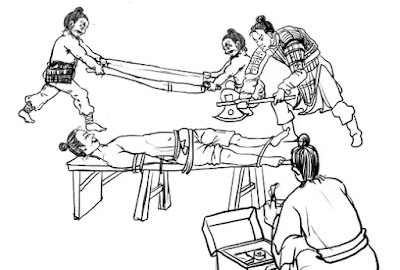The defence counsel further argued that “one person could not inflict fatal injuries on the four deceased and the two other injured and, thus, it was a case of robbery and dacoity by unidentified persons and the appellant had been wrongly implicated in the said case”.
Calling it “the rarest of the rare” case, the Punjab and Haryana High Court has upheld the death penalty handed down to a man for killing his wife, two children and sister-in-law in Punjab’s Phagwara area in 2013.
Dismissing murder convict Baljinder Kumar alias Kala’s appeal against the death penalty, the division bench of Acting Chief Justice GS Sandhawalia and Justice Lapita Banerji said, “We confirm the death sentence under Section 368 of the CrPC and direct the confirmation order be sent to the Sessions Court.”
“The brutality of the incident is one which we would describe as a diabolic act whereby the conscience of the society as a whole has been shocked. The deceased were done to death in the safety of their own house, and in such circumstances, we do not find any mitigating reasons not to confirm the death reference, as it falls within the category of rarest of rare cases,” the bench observed.
The defence counsel argued that it was “a case of circumstantial evidence and it was a case of blind murder and there was a delay in lodging an FIR. The presence of the eyewitnesses is doubtful and, therefore, the conviction is not justified”.
The convict moved the High Court against the death sentence handed down to him by the Additional Sessions Court of Kapurthala in 2020. He was booked under sections 302 (murder) and 308 (attempt to commit culpable homicide) of the Indian Penal Code (IPC).
According to the prosecution, Baljinder killed his wife Seema Rani, his kids — three-year-old Suman Kumari and two-year-old Harsh, sister-in-law Reena Rani and injured two others on November 29, 2013. Days before the murders, the convict had visited his mother-in-law Manjit Kaur and threatened to kill his wife and children who had left him over a dispute.
An amount of Rs 35,000 was to be paid to Baljinder and his sister Rekha Rani by her former husband as part of their divorce settlement. Since Manjit Kaur had arranged his’s sister marriage, which did not work out, and also stood as a guarantor for the return of the money, Baljinder held a grudge against her as she failed to ensure the return of the money, the prosecution said.
The defence counsel further argued that “one person could not inflict fatal injuries on the four deceased and the two other injured and, thus, it was a case of robbery and dacoity by unidentified persons and the appellant had been wrongly implicated in the said case”.
The state counsel, however, argued that it was a case where “the trial court has rightly invoked the principle of rarest of rare punishment to be awarded on account of it being a diabolic act, as two minor children had been done to death by the father who also killed his wife and his sister-in-law over a petty dispute of Rs 35,000. Also, it was never the case of dacoity or robbery by unidentified persons as there was no proof that some valuables had been taken away”.
The bench on hearing the contentions held that “the manner in which the assault was carried out would also go on to show that it was by a person who was keenly nursing a grudge. It was not a case of the robbery by unidentified persons who could have easily overpowered the minor children and ladies if they so wanted and there was no need to inflict injuries on the children deceased in the manner it had been done”.
Giving reasons for upholding the death penalty, the bench said, “The crime was committed when the helpless women and children were half asleep in their own house and the motive is merely regarding return of Rs 35,000, on account of the fall out of the marriage of the sister of the accused. The manner in which two children of the appellant himself were done to death along with his wife and sister-in-law cannot be said to be a crime which was done in the heat of passion, but was pre-planned.”
_____________________________________________________________________
SUPPORT DEATH PENALTY NEWS







.jpg)





